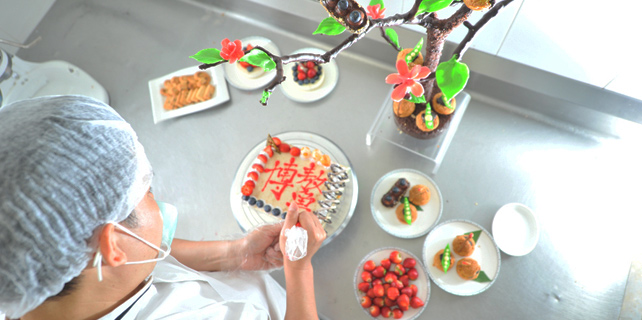Surrogacy standoff sees more couples heading abroad
Failed attempt
Liu Li has a deformed uterus, which prevents her from becoming pregnant naturally or safely carrying a baby to term, but she still produces eggs.
The 39-year-old Shanghai native decided to seek treatment in the United States after an attempt at underground surrogacy failed. Almost three years ago, Liu found a surrogate via an agency in the municipality, but the woman disappeared after the embryo had been implanted.
"I spent a large sum, but I didn't get my baby," Liu said, declining to give details of the amount she paid. She didn't report the incident to the police because "surrogacy is illegal, and I didn't want other people to know".
Inspired by ads she saw at the fertility clinic she had attended, Liu turned her eyes to California, where surrogacy is legal, and approached an agency in China.
In August 2015, she first met with her surrogate, Amanda, a young white woman, in a fertility clinic in the US state.
Amanda had already undergone a series of health checks and psychological tests to ensure that she would make a suitable surrogate, according to Liu: "I liked her at first sight, so we signed the surrogacy contract quickly."
Having supplied the egg and her husband's sperm, Liu welcomed her baby daughter in June. As she and her husband are the child's biological parents, the baby's features are undeniably Chinese.
The entire procedure cost about $150,000. "It would have been cheaper and easier for us if surrogacy were allowed in China," she said.
Wang, from the Peking University Third Hospital, suggested the government should ease the ban to help women such as Liu to have a child.
Volunteer surrogacy is allowed in many countries, and commercial surrogacy is also available, especially in some US states.
"China should follow suit. But purely commercial programs must be strictly prohibited," said Wang, who has treated many young women who have had their ovaries removed because of diseases such as cancer.
"They are so young and shouldn't miss the chance of having their own child. Surrogacy can help them fulfill their dreams of motherhood," she said.
According to Wang Yifang, a professor at Peking University's institute for medical humanities, legitimate surrogacy could also help couples who have lost their only child as a result of accident or illness, but the wife is now too old to conceive naturally or carry a pregnancy to term.
"Ethical concerns should not undermine reasonable application of this helpful medical procedure," he said.









